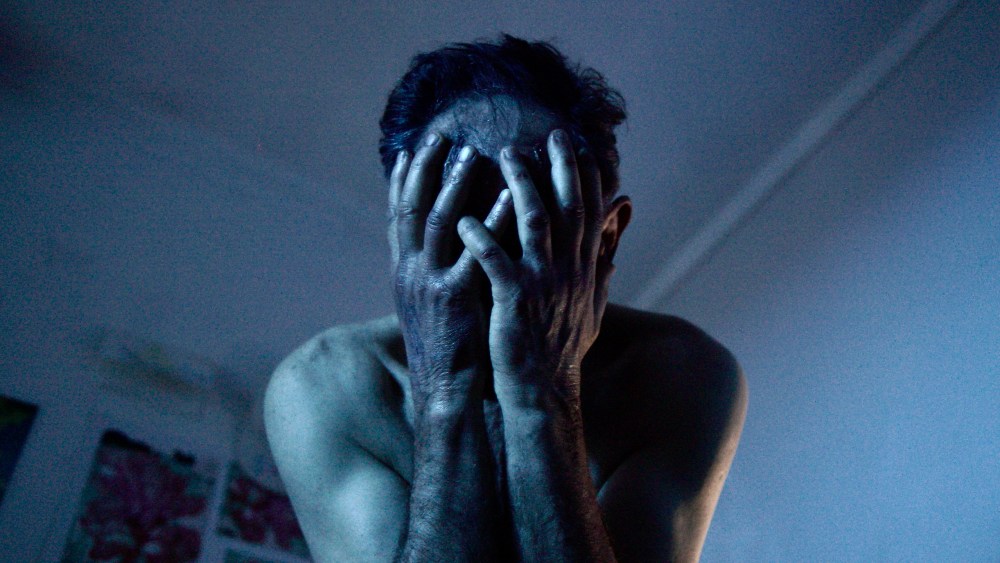Fangoria Studios Checks Out Sanfic Morbido Lab for Co-Productions
In an unprecedented move, New York-based Fangoria Studios is attending the Sanfic Morbido Lab for possible co-production opportunities.
“Horror is a universal language that transcends cultural boundaries, making it the perfect foundation for this partnership. There’s no better way to mark Fangoria coming onboard with Morbido than by celebrating Latin American horror that has captivated global audiences,” said Fangoria Studios’ Armen Aghaeian, senior VP of TV + FILM, adding: “After all, everyone screams in the same language.”
Now marking its 6th edition at Chile’s prominent Santiago Int’l Film Festival (Sanfic), the lab has lured the likes of Julio Hernandez Cordon this year, best known for his award-winning pics “I Promise You, Anarchy,” “Marimbas from Hell” and “Gasoline.” This time he’s pitching “Cloudspotting” (“Enviame tormentas”), a co-production between Diana Bustamante’s Burning in Colombia and Mexico’s newly launched Somos Maravillosa, led by producers María José Córdova and Triana García Simón. Drama is set in a drought-stricken Mexico City where a boy named Humo revives ancient rituals to summon rain.
Another standout project out of the six entries is Jorge Leyva’s “Sunward Hell” (“Ruta al sol”), which already won a clutch of awards. It turns on Sara, a preacher struggling with her faith, who teams up with two others to face a savage pagan whose ancient secrets could trigger the Final Judgment.
Morbido Group CEO Pablo Guisa Koestinger sifted through 68 submissions to choose five competing entries as “Sunward Hell” already had a direct pass from Ventana Sur Blood Window.
“The process of reviewing all the submissions for each year of Morbido Lab feels like examining an X-ray of the current state of Latin American genre filmmaking – and I have to say, the genre in LatAm is not just alive but thriving, stronger than ever,” said Guisa.
Spanish producer Miguel Asensio Llamas, who has produced genre films in Chile and Mexico, including Eli Roth’s “Knock Knock” and “Green Inferno,” will participate in the Lab by sharing his experience on how to deliver Hollywood-standard productions in Latin America on a lean budget.
Morbido Group also selects two projects to board, covering 10% and 20% of each project’s final budget, said Guisa. In addition, it will dole out the Fantastic Pavilion Award which gives the winner a direct pass to participating in the Fantastic Pavilion round robin next year.
Past projects that have been selected at Sanfic Morbido Lab and gone on to achieve notable success include “Mothers Embrace,” which completed its festival run, secured world sales and is now available on Netflix.
“Upiro” is currently in post-production, while “La Sirena de Monterrey” became a Mexican-Argentinian co-production and recently applied for the Mexican tax incentive, led by Paulina Villavicencio. Another standout is “Cachorra,” which won as a project at the Guadalajara Festival, later participated in the Marché du Film and was presented at the Sitges Fantastic 7 showcase.
A drill down on the selected projects:
“The Man Who Cries,” (“El hombre que llora,” Leonardo Florentino, Argentina)
Produced by Mar del Plata, Argentina-based Musgo Cine, founded in 2023 by Nicolás Werner, Florentino and Deborah Narváez. The company aims to diversify Argentina’s film landscape, focusing on stories set outside the capital. Their projects have been featured at major Latin American industry events like Sapcine (Colombia), Raymundo Gleyzer (Argentina), Bolivia LAB, CDPAI (Spain) and FERATUM Residency (Mexico). Currently in development, pic follows an apathetic journalist investigating strange deaths of teenagers, potentially caused by a supernatural figure: the “Crying Man.” The team seeks international co-producers. Filming is planned for the second half of 2026. “For us, terror is not a trend or a way to “elevate” a story. We believe horror is the best genre to engage with reality, more so than crime stories,” says Florentino who adds that the film “tells a different story, one rooted in cosmic horror, akin to ‘Lovecraft.’ That’s why the city, particularly Mar del Plata, plays such a strong role, with its landscapes and statues, almost as a character in itself.” “The film delves into deep themes like fatherhood and the extreme lengths a father might go to for his child, raising dark moral questions,” says Werner.
“The Skin of the Forest,” (“La piel del bosque,” Camilo Pineda, Inti Torres, Venezuela)
A psychological thriller produced by Merida, Venezuela-based La Tina Films and Pedregosa Films, that follows a brilliant biology student who experiments with hallucinogenic mushrooms growing on human flesh, ultimately merging with a powerful ancient jungle entity. The project is co-produced with Imperatori Producciones (Venezuela) and Latido Producciones (Panama). Attached cast includes Margiangel Dávila, Eloísa Maturen and Leonidas Urbina. With the script and casting already set, the production is currently seeking financing and participation in industry labs, with filming scheduled for mid-2026. Producer Alejandra Fonseca describes it as “a blend of psychological horror and dark science fiction, with a surreal and atmospheric visual approach.” “The film explores themes such as obsession, scientific ethics, the loss of humanity, and the connection between human beings and nature,” says co-director Pineda. Torres adds: “The making of this horror film aims to create an immersive sensory experience where the scientific and the spiritual collide, using the forest as a living character that consumes the protagonists as the film progresses.”

“Los Eastman,” (“Los Eastman,” Mauricio Leiva-Cock, Colombia, Mexico)
Currently in development and seeking financing, with shooting slated for January 2027, this genre-bending feature is co-written by director Mauricio Leiva-Cock (“The Night of the Beast,” “The Head of Joaquín Murrieta”) and Diego González Cruz. The film is produced by Adriana Aparicio, Sebastián Hernández, Juan Manuel Betancourt, and David Figueroa García, in co-production with Fidelio Films (Mexico) and Colombian partners Maleza Cinema, Ruvrika, and Aparicio. Aparicio produced the Sitges winner “Llanto Maldito,” while Maleza Cinema, founded by Leiva-Cock, develops bold, socially driven genre projects. Ruvrika is led by Hernández, editor of “One Hundred Years of Solitude,” and Betancourt, executive producer of “Transition” (Tribeca 2023). Set in Bogotá during a virus outbreak, the story follows Viviana, a housekeeper held captive by her wealthy employers. Her struggle to escape and reunite with her family leads to a terrifying transformation revealing that privilege itself may be the true infection. Inspired by real events during COVID, the film shifts from social drama to psychological thriller, horror and ultimately, gore. “We call it Social Gore,” says Leiva-Cock, “a Latin American blend of ‘Parasite,’ ‘Get Out,’ and ‘Revenge’.”

“Sunward Hell,” (“Ruta al sol,” Jorge Leyva, Mexico)
“Sunward Hell” is the third feature film from La Tuerca Films, a Mexican production company led by producer Lilia Velazco and director-screenwriter Jorge Leyva, focused on genre cinema. Currently in advanced development, the project has gained strong industry momentum, winning awards at the Guadalajara Co-Production Meeting, Ventana Sur’s Blood Window and Fantasolab (Colombia), where it received eight prizes, including one from Latido Films. It has also been selected for prestigious forums such as Sitges Fanpitch, BIFF Market (Brussels), and is heading toward Iberseries Platino 2025 after Sanfic-Mórbido Lab. “Sunward Hell” follows Sara, a preacher grappling with her faith, who – alongside a redeemed rebel and a clever dreamer – must survive a confrontation with a savage pagan harboring ancient secrets that could unleash the Final Judgment. Leyva describes the film as rooted in personal history, inspired by his mother’s escape from a cult. “I use rural horror as a mirror to expose the violence and psychological control that exists where it hurts most: in the domestic nucleus, where everything is supposedly safe. My intention is for fear to confront the viewer and lead them to an uncomfortable question: faced with absolute evil, what would I do?”

“Hidden Roots,” (Raices ocultas,” Simon Bucher, Chile)
The drama-horror film co-written by director Simón Bucher with Juan Bucher is produced by Machete Film & Content. Currently in development, filming is set for late 2026 to early 2027. The story follows Ben, a man illegally adopted during the Chilean dictatorship, who returns to Chile in 2024 with his pregnant wife to meet his biological siblings in Chiloé. As he reconnects with them, he is plagued by visions of the Invunche, a mythical creature from Chilean folklore. Together, they confront buried truths and emotional scars in a landscape steeped in mystery. Machete Film & Content, founded in Santiago in 2016 by Nicolás Maynetto, focuses on auteur-driven genre cinema and explores immersive formats like VR and interactive storytelling, delivering emotionally resonant narratives from a Latin American perspective. “’Hidden Roots’ is a fable about the children who were kidnapped during Chile’s dictatorship and torn from their origins through illegal adoptions. Blending magical realism with the Chilean myth of the Invunche, the story gives shape to trauma and uprooted identity. It explores how history becomes monstrous when buried in silence,” says Bucher.

Hidden Roots, Courtesy of Machete Film & Content
“Cloudspotting,” (Enviame tormentas,” Julio Hernandez Cordon, Mexico, Colombia, Spain)
From Somos Maravillosa, founded by Mexican producers María José Córdova and Triana García Simón, who see the film addressing “issues that not only concern us but demand an urgent response.” Córdova’s credits include acclaimed films like “Eureka” (Cannes 2023), “Cómprame un Revólver” (Cannes 2019), and “Oca” (Toronto 2025), alongside hit series “Sacred Family” and “The House of Flowers.” García Simón brings extensive experience as a studio executive and producer, having worked on “Luis Miguel: The Series” and Netflix’s “Snakes and Ladders,” and “Fiesta en la Madriguera.” The company aims to create global, innovative stories rooted in Latin American and Spanish talent. Co-produced with Colombia’s Burning, “Cloudspotting” follows Humo, a boy who revives ancient rituals in a desperate quest for rain in a dystopian Mexico City. As storms rise and violence escalates, his obsession threatens to consume all. Production begins in 2026. Says Condon: “My gore film talks about an obsession and love for clouds while hearts are literally being ripped out. In it, a pre-Columbian past is mixed with a dystopian future. It’s a very special film for me, because I conceived it as an entertaining but political film that avoids being preachy. Just like George Miller’s movies.”

